THE LARAMIE PROJECT
by Moisés Kaufman and the Members of the Tectonic Theater Project
Johns Hopkins University Barnstormer’s 100th Anniversary Season
Produced by Julia Zimmerman
The Swirnow Theater at the Mattin Center
October 26 - November 4, 2018
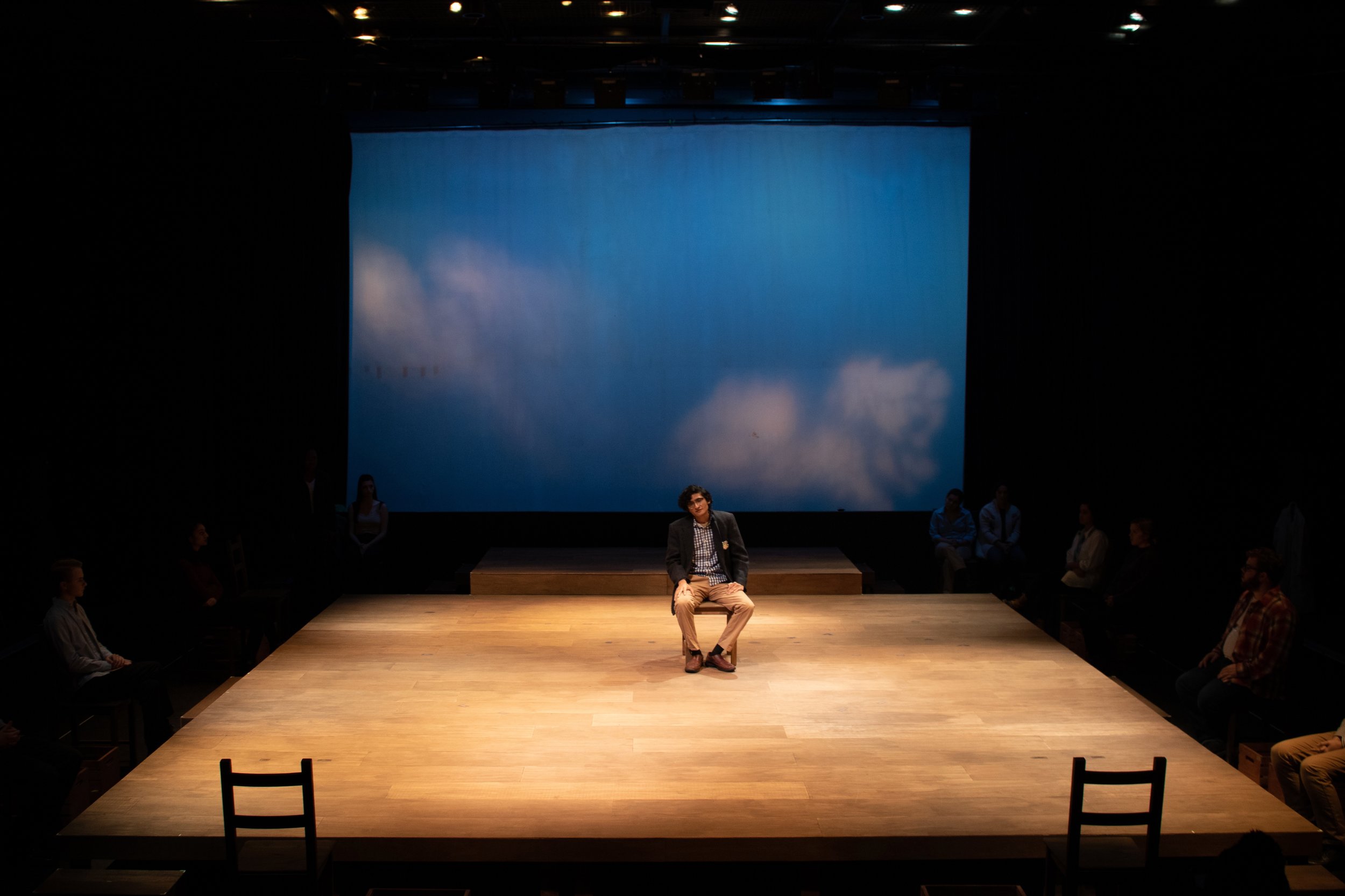
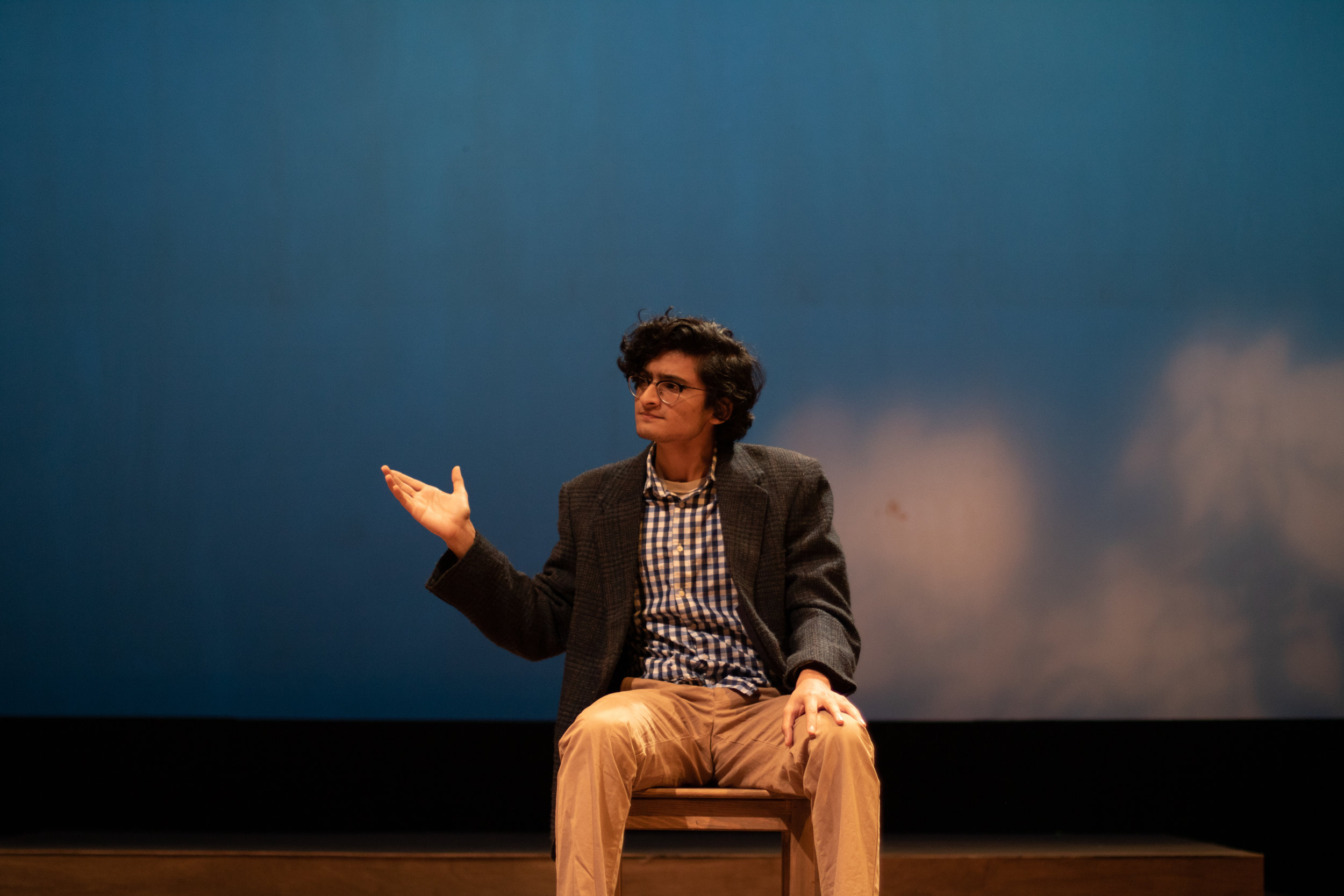
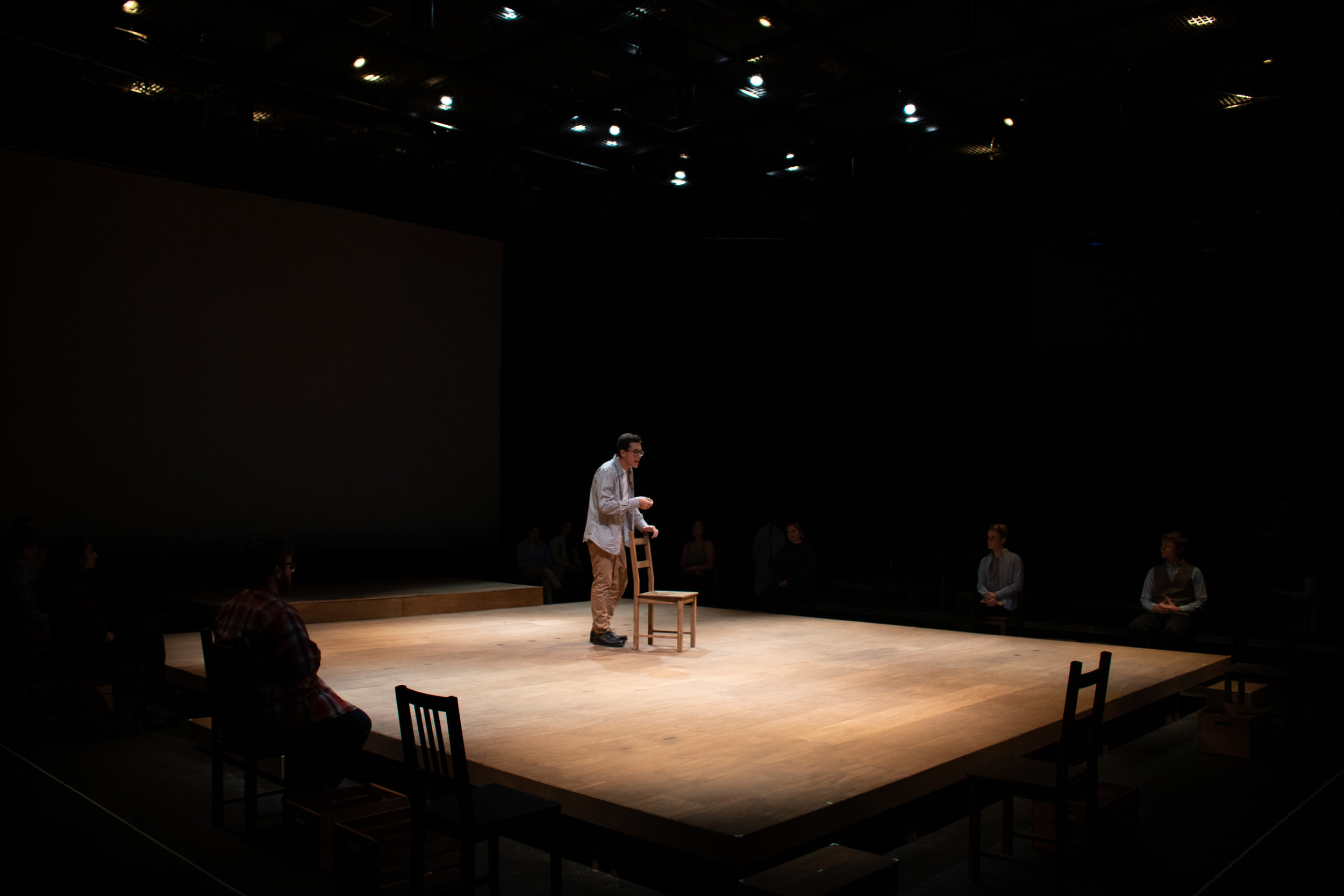
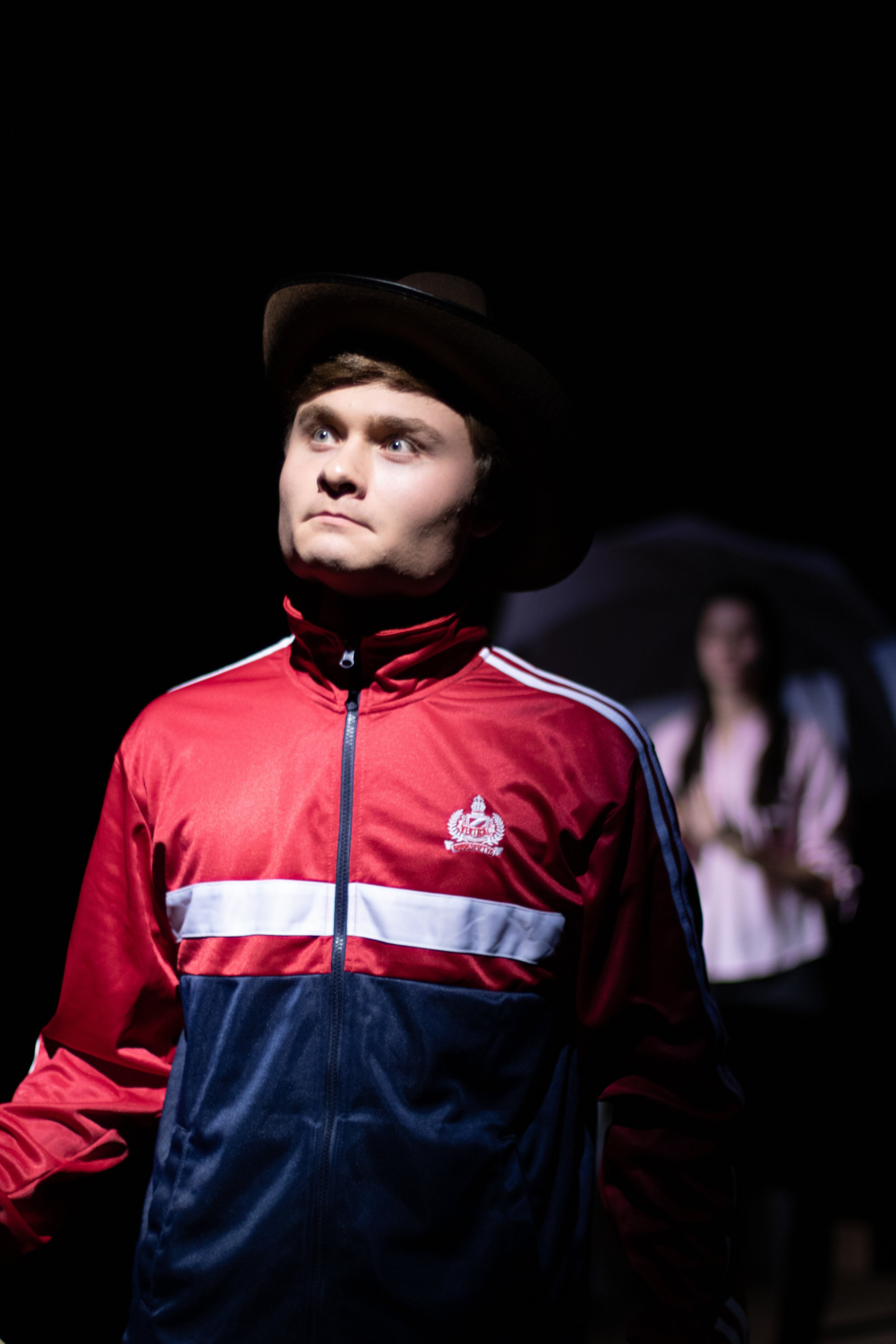
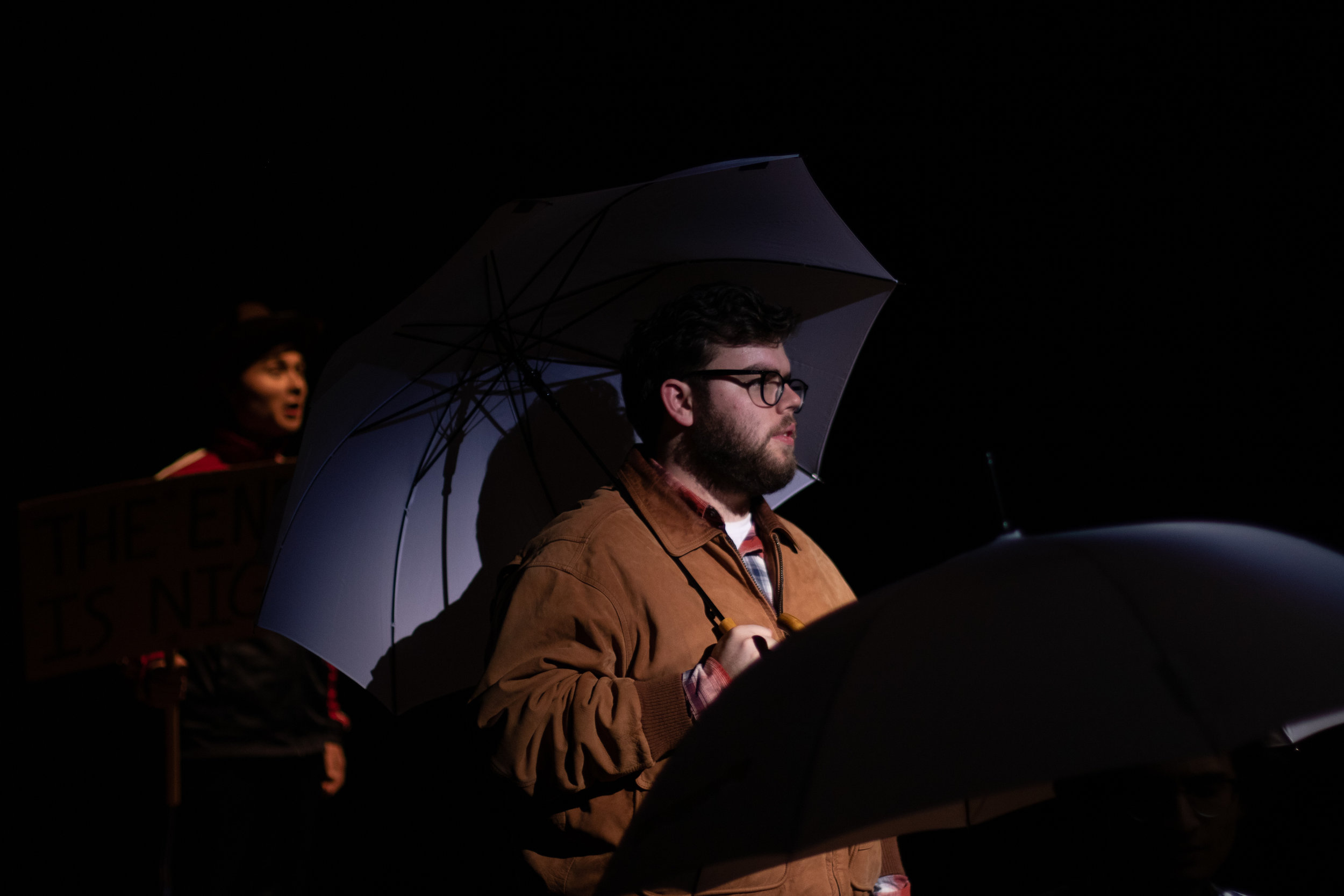
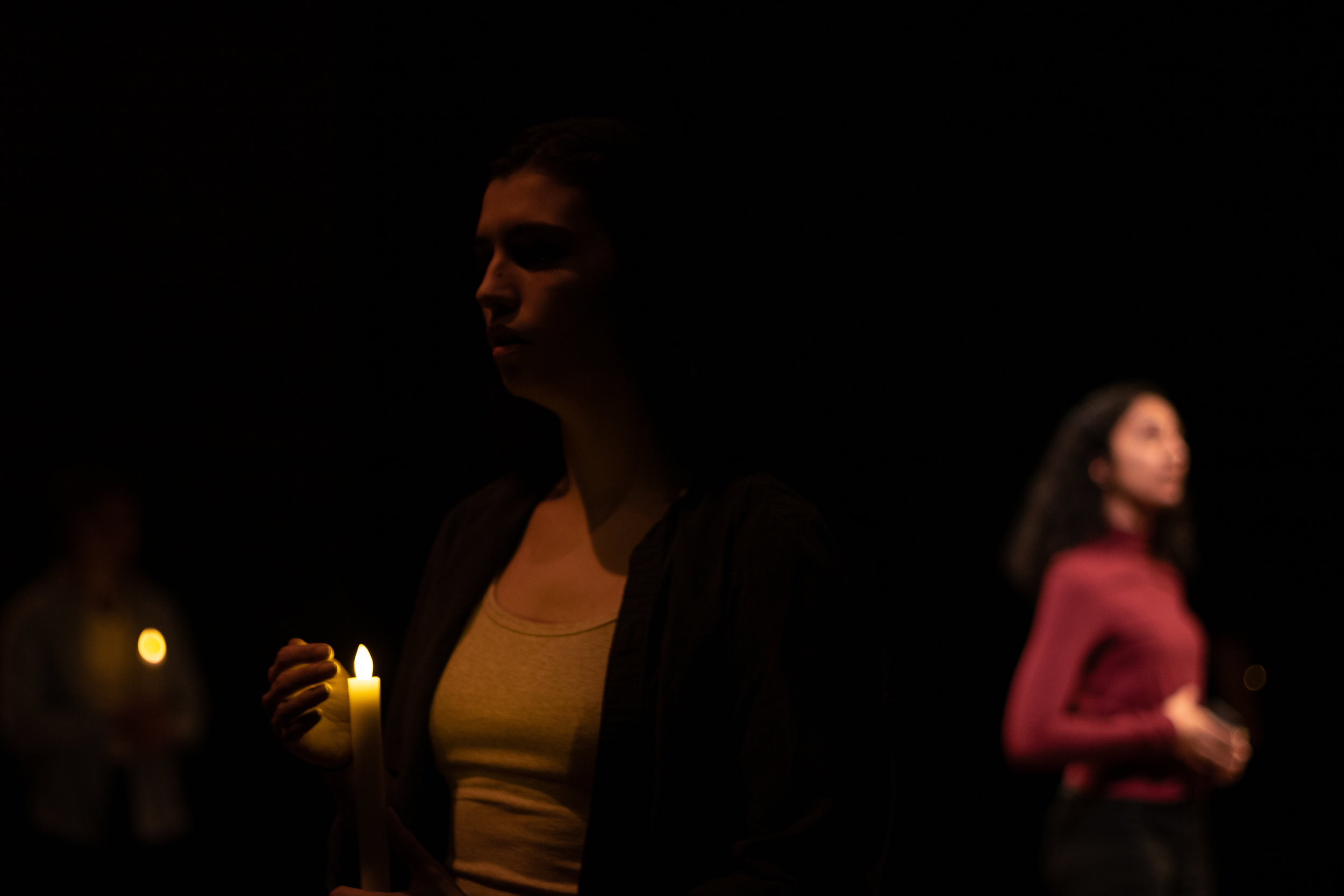
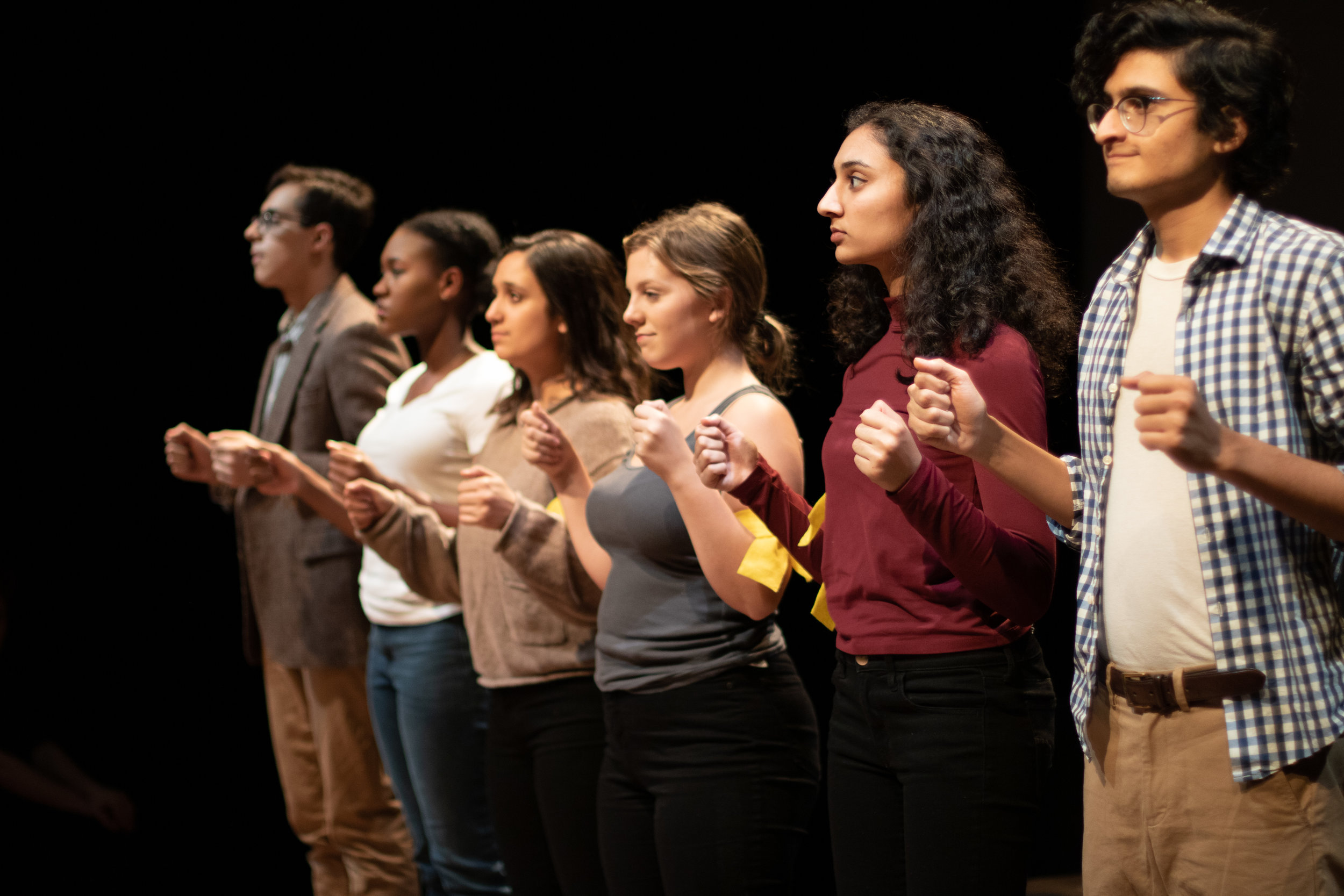
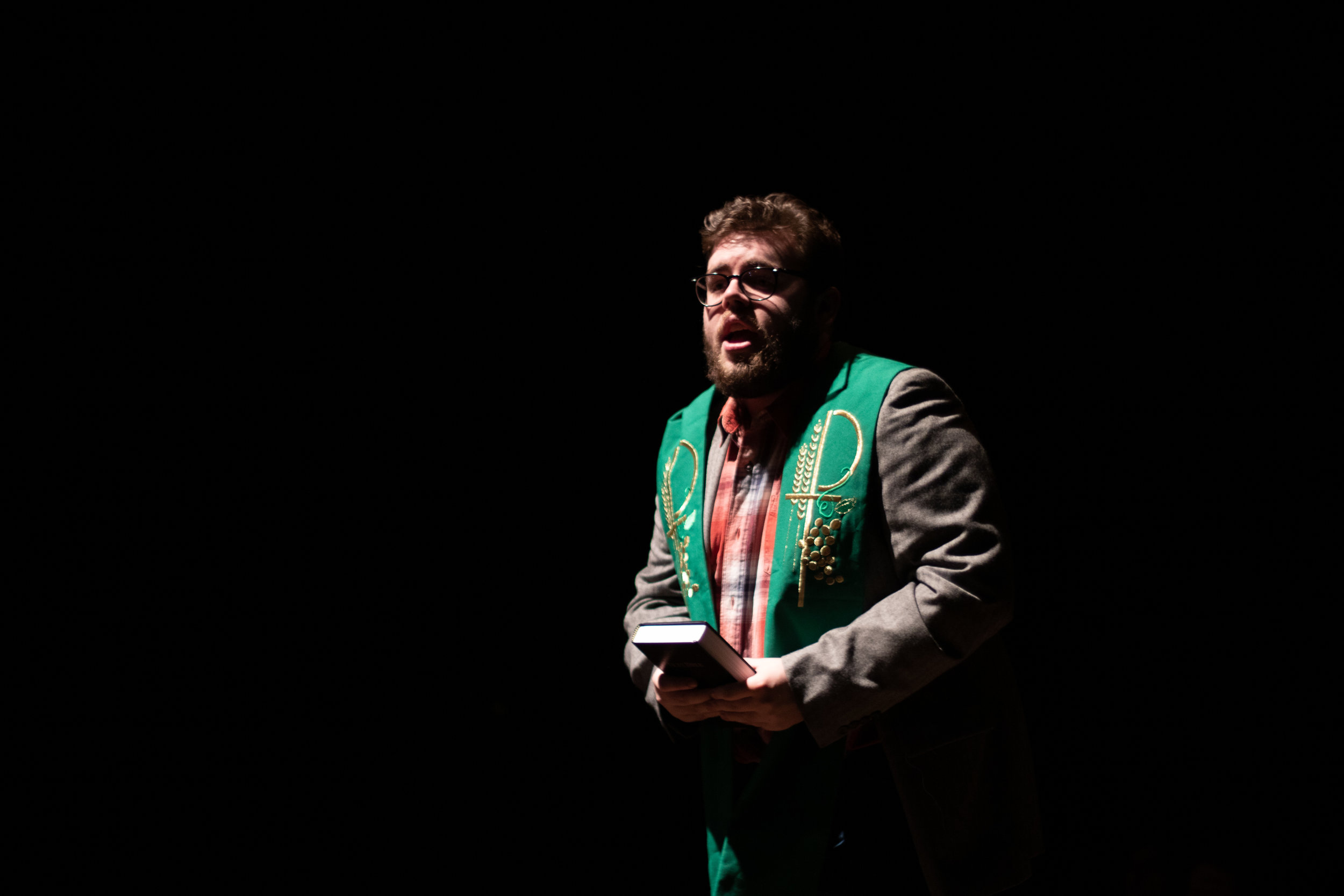
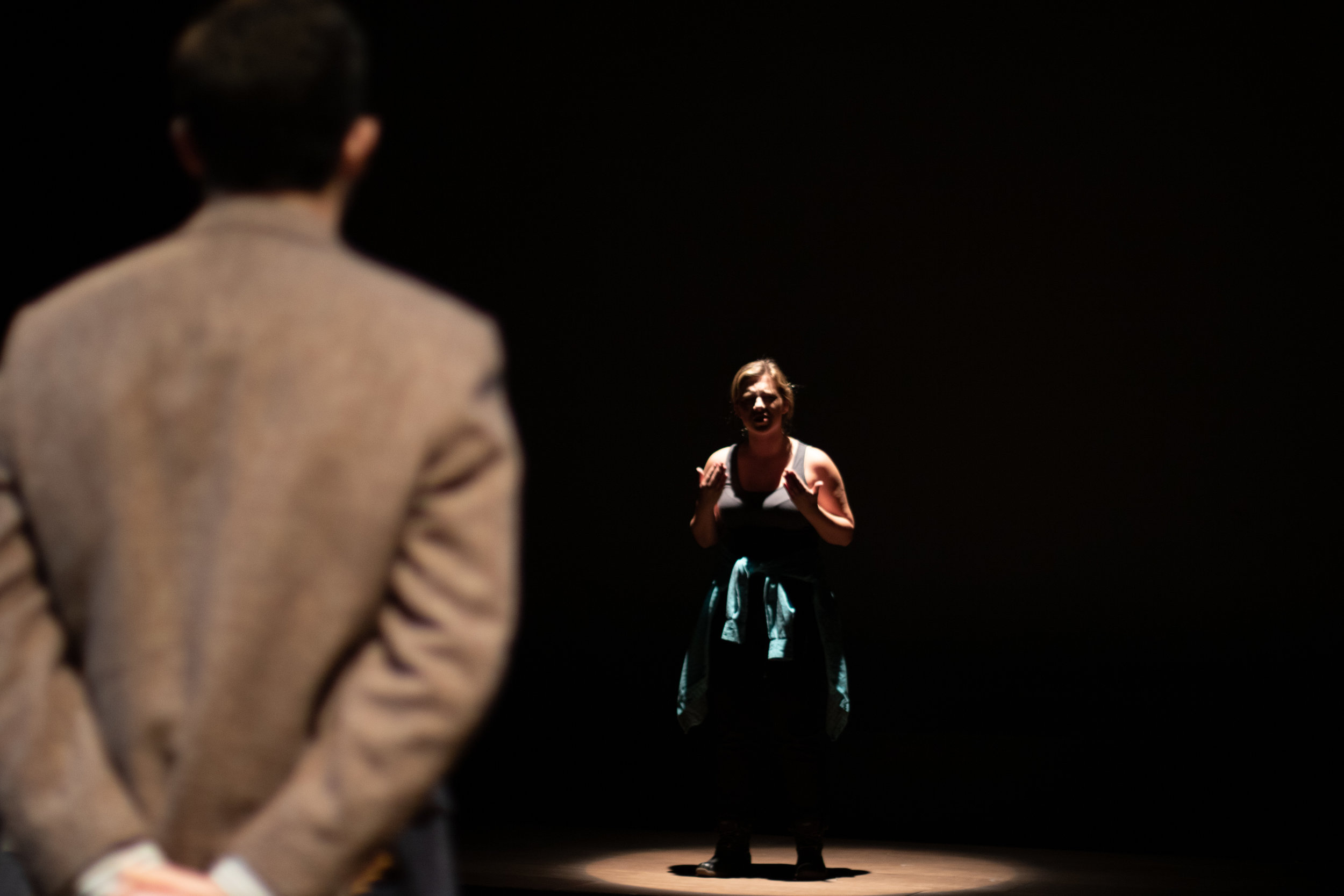
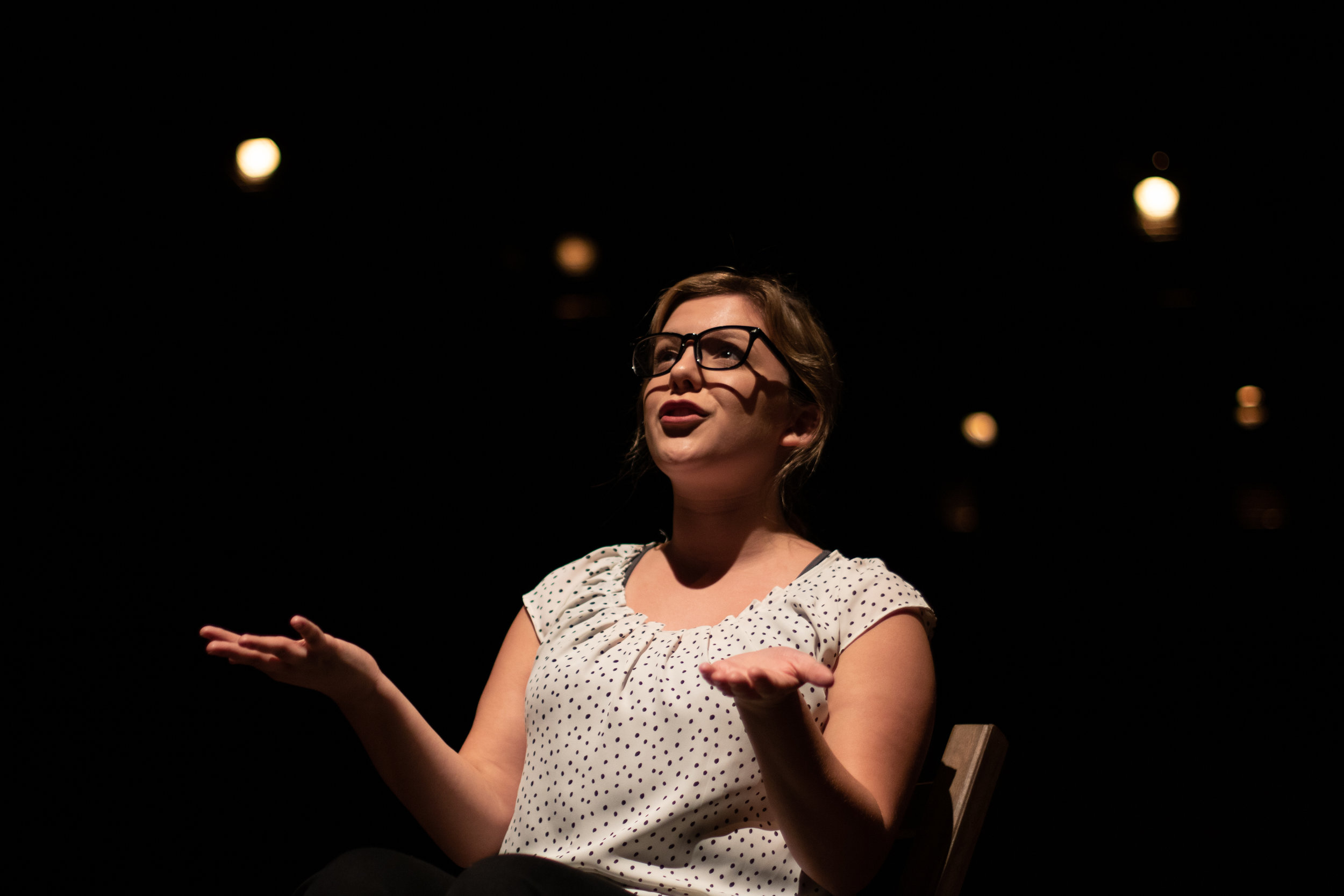
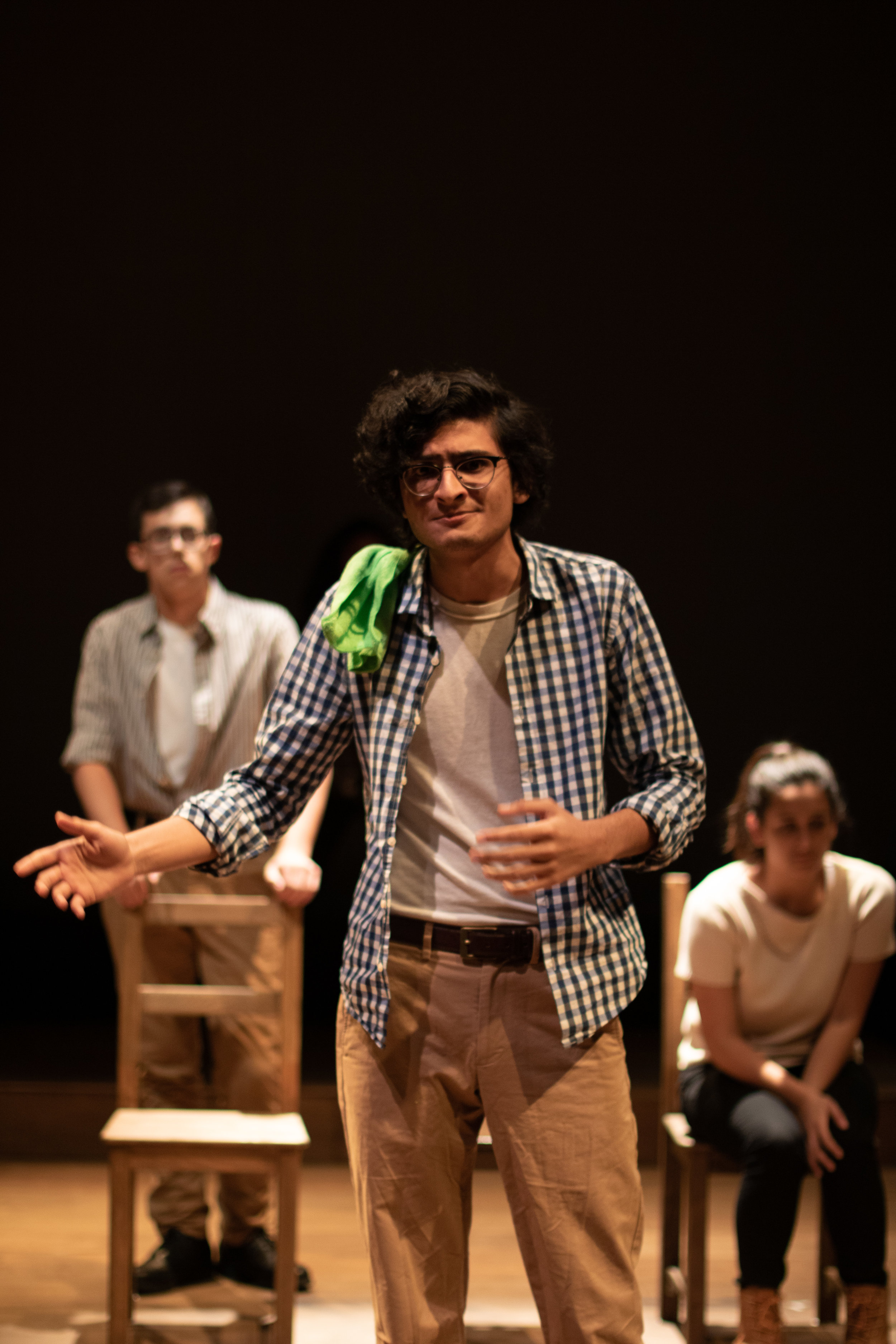

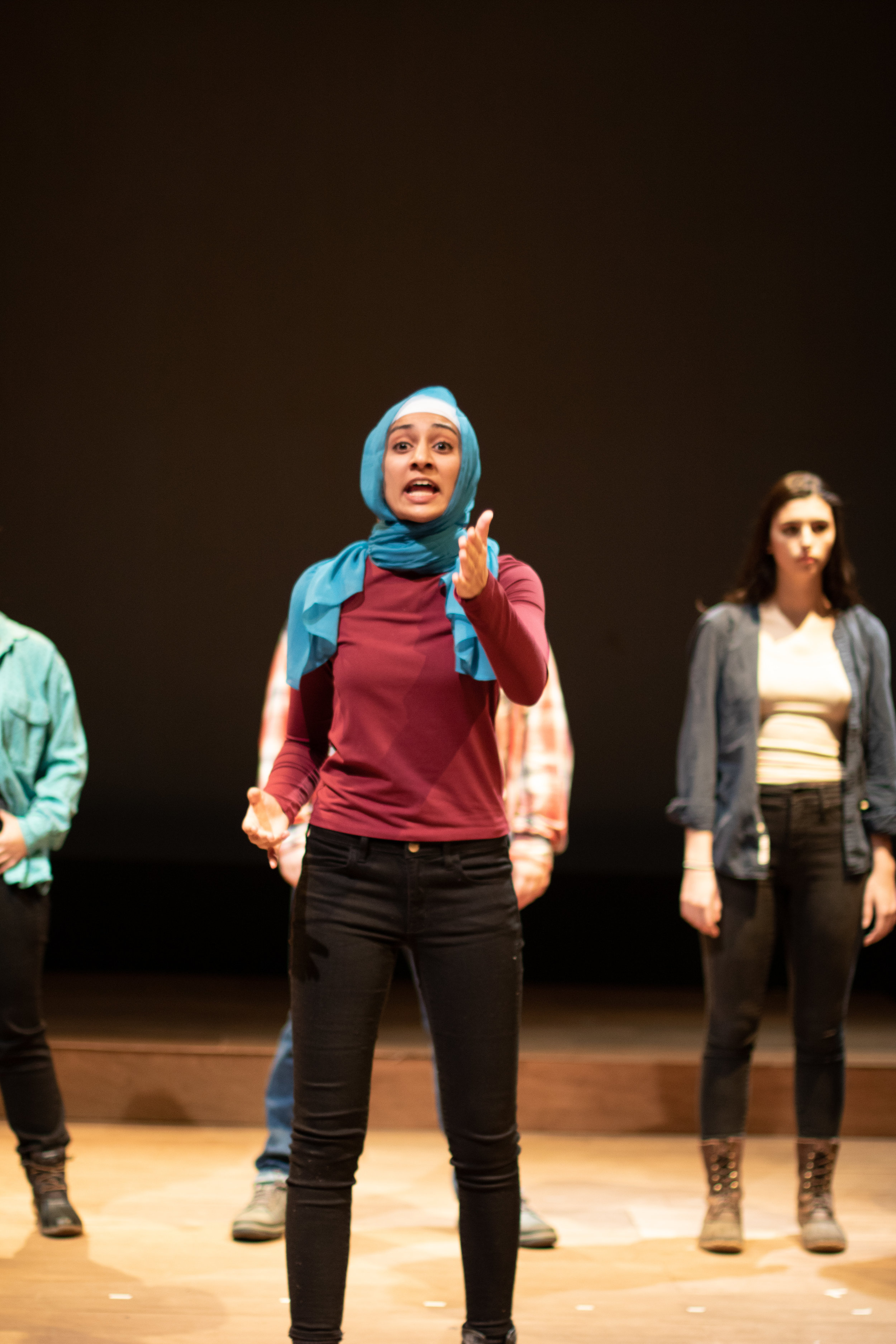

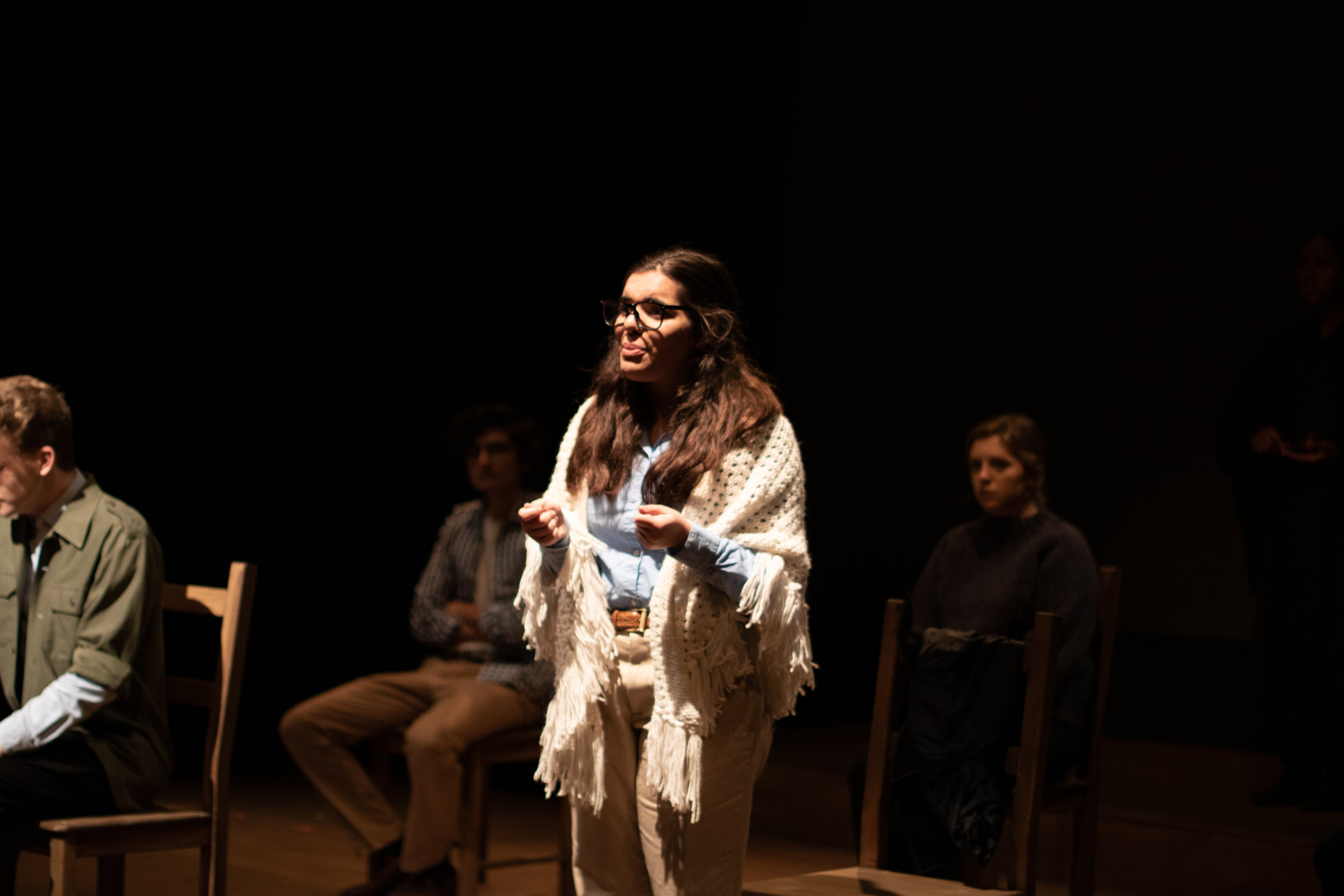

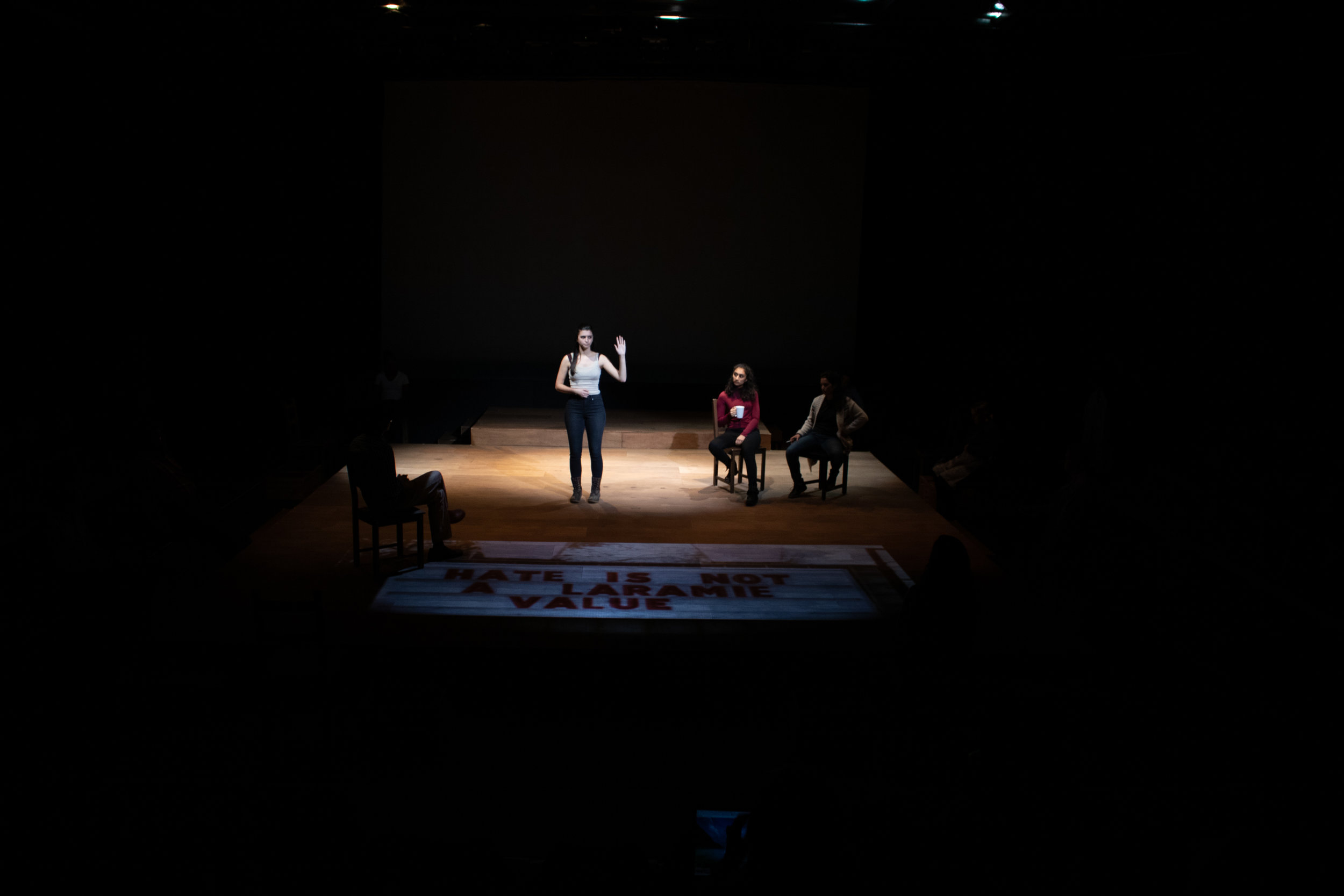
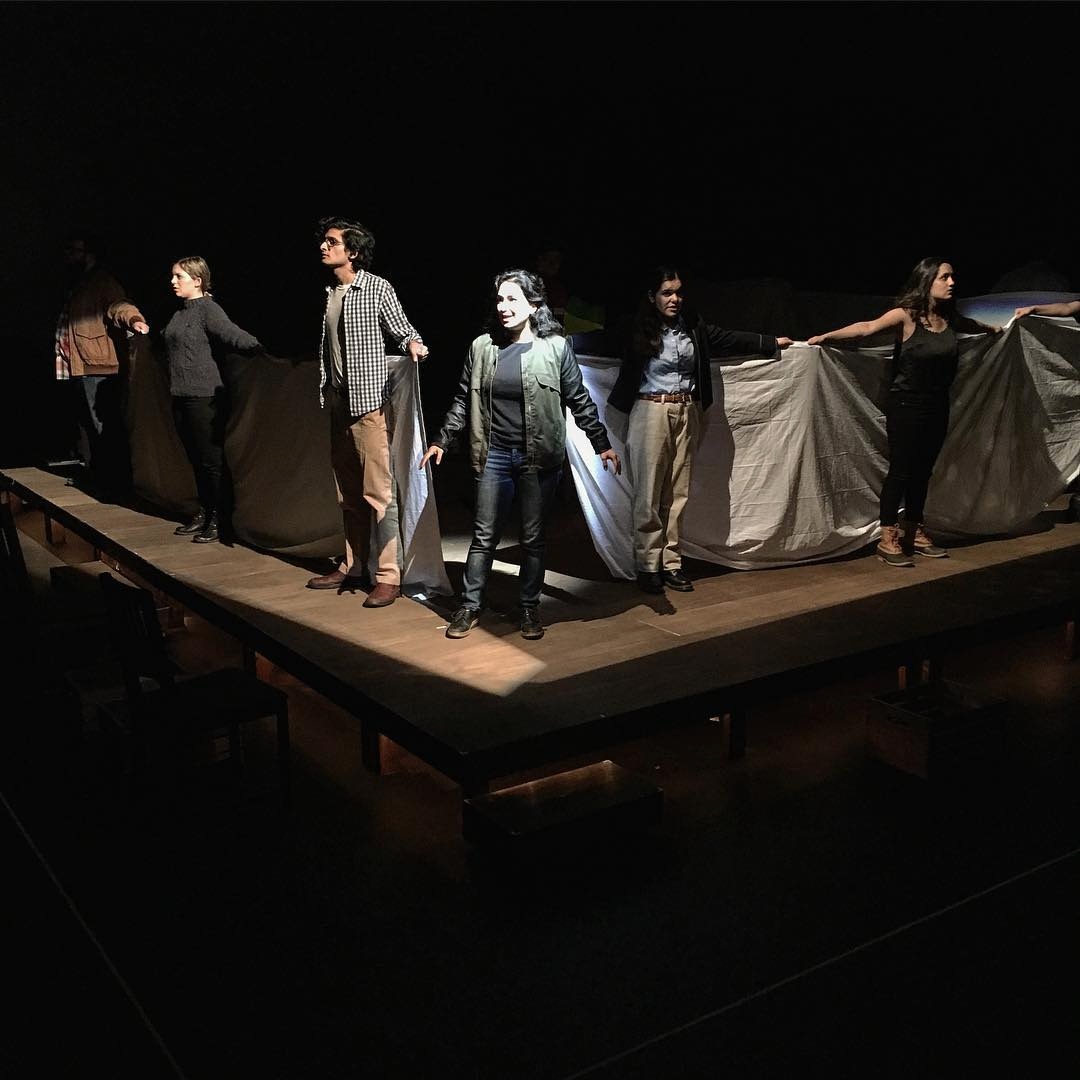
CREATIVE TEAM
director - Noam Shapiro
producer - Julia Zimmerman
assistant producer - Deb Weidman
stage manager/dramaturg - Tori Lyons
assistant stage manager - Sophia Lipkin
assistant directors - Julia Marchyshyn & Chloe Otterson
scenic designer/co-technical director - Laura Oing
projections designer-co-technical director - Brandon Lax
projections assistant - Anna Shinn
lighting designer - Laura Nugent
assistant lighting designer - Shireen Guru
sound designer - Maggie Annis
costume designers - Allison Cuesta & Kaley Sten
properties masters - Andrew Gausepohl & Sarah Linton
production manager - Bill Roche
photo credits - Nick Xitco
ENSEMBLE
Isabella Altherr
Usman Enam
Gabriel Feuerstein-Mendik
Octavia Fitzmaurice
Ritika Kommareddi
Cherease Lamm
Ben Leach
Keelin Reilly
Hamilton Sawczuk
Maya Singh Sharkey
Sydney Thomas
Kinsey Tyler
THE LARAMIE PROJECT
Synopsis:
In 1998, twenty-one year old Matthew Shepard was tied to a fence, beaten, and left to die in Laramie, Wyoming. He had been the victim of a homophobic hate crime that shook Laramie and his death marked a watershed moment in America. Composed on hundreds of interviews conducted with the town’s residents over the course of a year, The Laramie Project is a stark look at the violence and prejudice LGBT people face in contemporary America, the way a community responds to hate, and our capacity for hope in the midst of despair.
The Johns Hopkins University Barnstormers’ production marks 20 years since Matthew Shepard’s passing and the 100th anniversary of the Barnstormers. Featuring a diverse cast of twelve, this production—and the campus-wide programming surrounding the show—examines how far we’ve come since 1998 and how much work we have yet to do.
PRESS
“‘This play creates a space for dialog,’ says Noam Shapiro, the play’s director. “It holds up many peoples’ perspectives and it allows us to hear them and to make judgments for ourselves and hopefully be affected by their particular point of view. I think with this play, audiences have a capacity to be moved, and when people are moved, there’s a capacity for change.’ The Barnstormers selected the play to kick off their 100th anniversary season this year because they were looking for a story with significant impact. ‘When you choose a play, I think you’re always asking, ‘Why do this play and why do it now?’ says Tori Lyons, the production’s stage manager and dramaturg. ‘And especially on a college campus, you’re looking for lessons that the audience can take away from it. I think it made sense for us because we found the play to be really relevant in 2018.’”
"Discovering Laramie" by Saralyn Cruickshank for The Hub, October 25, 2018
“The play seemed to be one long choreographed dance; the actors moving around the stage, passing off the spotlight and quietly making clever costume changes that differentiated the 60-plus characters the cast of 12 had to play with flawless execution... Shapiro commented on the play’s message and how he wants it to reach those who watch it. ‘One of the main arguments of the play is that hate can happen everywhere,’ Shapiro said. ‘Part of healing is remembering and staying angry and saying this kind of hatred — this kind of violence — is unacceptable. It is who we are as Americans, but it doesn’t have to be. We can become a more perfect union, but it takes some work.’”
"Barnstormers shine in fall play The Laramie Project," by Katharine Lee for The Johns Hopkins News-Letter, November 1, 2018
COMMUNITY RESPONSE
“What a tremendous and amazingly moving production. You have done a beautiful job of honoring Matt’s memory. Thank you!”
“Congratulations on the successful run of your production of The Laramie Project. I had the privilege of attending a showing this weekend, and I was so impressed by all of the talent displayed by the actors, designers, and crew. I am also grateful that you chose to present this material to our community— even 20 years after the death of Matthew Shepard, the play’s themes feel very relevant and immediate. Thank you for your willingness to take on this material and broach such an important conversation on our campus. ”
“I wanted to say thank you to all of you - directors, designers, cast and crew - for a great show yesterday. I was very moved by the honest and heartfelt production and performances. Clearly the play is just as relevant today as it was when it first opened, and you should all be very proud of yourselves for your work on this project.”
“We’re grateful for the opportunity to partner with the Barnstormers to have a conversation about what has changed over the past 20 years of LGBTQ organizing, and what has stayed the same. We also appreciate the chance to honor the lives lost to hatred and intolerance of LGBTQ people.”
“If you’re around Baltimore this weekend, I would highly recommend taking the time to see this production.”
DIRECTOR’S NOTE
If the past two years have made anything clear, it’s that hate is on the rise in America. The Center for the Study of Hate and Extremism reports that Hate crimes in America’s 10 largest cities went up by 12.5 percent in 2017, making it the fourth consecutive year U.S. hate crime reports have increased. According to the National Coalition of Anti-Violence Programs, in 2017 the LGBTQ community was victimized by a near doubling of homicides over 2016. And in Maryland, the Baltimore Sun reported that law enforcement received 398 reports of Hate last year—an increase of 35 percent from 2016—a pace of more than one report a day.
Recently, Judy Shepard, Matthew Shepard’s mother, gave an interview in which she said, “I’m really mad. And I’m really scared. I’m really scared that all the progress we’ve made is fading.” But then she added, “I’m confident and hopeful every day when I get up that all those kids in high school and college who have known eight years of good work will refuse to be set back. That’s my hope.”
During this uncertain time, working on The Laramie Project with the Johns Hopkins University Barnstormers has provided me with a ray of hope. Like myself, many of the artists who’ve put together this production were very young when Matthew Shepard was murdered. Others weren’t even born. Yet by telling this story twenty years later, lifting up the voices of Laramie, and remembering Matt, the Barnstormers are standing in solidarity with all who fight for the dignity and equal rights of every human being. And by joining us today, so are you.
“At times like this, when we’re talking about hatred as much as the nation is right now,” observes a character in The Laramie Project, “someone needs to show, that there is a better way of dealing with that kind of hatred.” For some characters in the play, this activism is overt. For others, change begins by simply examining their belief structures. Beyond its emotional impact, one of the greatest accomplishments of The Laramie Project is its ability to hold up multiple viewpoints at once and allow us to arrive at our own conclusions. The play creates a space for dialogue by inviting us to spend some time listening to other people and witnessing how they transform in the aftermath of a tragedy.
Just as intolerance and hate are taught—at home, in neighborhoods, and at political rallies—acceptance and love begin at the individual level. Change starts with asking ourselves, “What language do I use? What jokes do I tell? What judgments do I make and what might I learn about myself by relinquishing those judgments?”
When confronted with hate, there’s often a desire to distance ourselves. But we cannot. In 2018 every town is Laramie. I invite you to spend some time listening to the people of Laramie, WY. Some of them might sound foreign. Some of them might sound familiar. Some of them might even sound like you. To quote another character from the play, “We are like this. We ARE like this. WE are LIKE this.” But we don’t have to be. We have the capacity to erase hate. This change begins with the ways we remember and the stories we tell. Stories like this one.
-Noam Shapiro
October 26, 2018